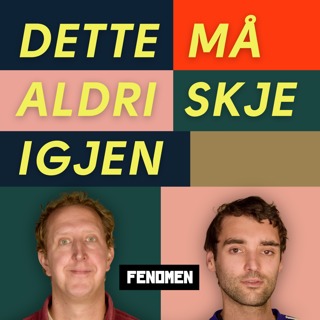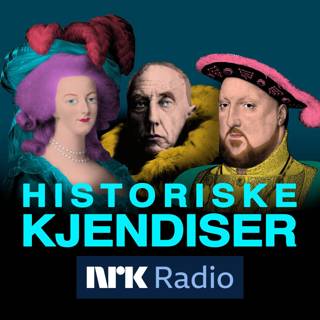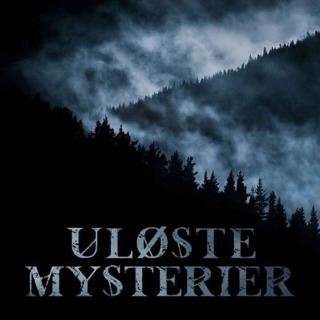
The Bronze Age Burials at Stonehenge
Today we’re talking all about science, Stonehenge and what we know about a massive migration into Britain at the start of the Bronze Age some 4,500 years ago: the Steppe migration. For years the details of this incredibly important event have been hotly-debated. But recently, a huge new study has analysed the remains of several hundred individuals buried in Britain and dating to this time period, hoping to uncover more about the nature of this migration. Among the remains that were studied included a series of bronze age burials discovered around Stonehenge. So what did the results of the study reveal? How did this migration affect the Neolithic British population that already inhabited this island? And how did these new people perceive ancient monuments such as Stonehenge? To talk through the study and its results, with a particular focus on certain bronze age burials around Stonehenge, Dr Selina Brace returned to the show. An ancient DNA specialist, Selina works at the Natural History Museum and previously appeared on the Ancients podcast for the hit episode ‘Cheddar Man: Science and the Skeleton’. Hosted on Acast. See acast.com/privacy for more information.
5 Des 202139min

The Origins of Life on Earth
Today we’re going back to the beginning – no Romans, Celts, Egyptians or Macedonians in sight. We’re going much further back, covering billions of years of prehistory as we look at the emergence of life on Earth. From the rise of the earliest microscopic membranes to the arrival of the dinosaurs.To talk through this massive topic, Tristan was joined by Henry Gee, a palaeontologist, evolutionary biologist and senior editor of the science journal Nature. Henry is also the author of a new book: A (Very) Short History of Life on Earth. Prepare to be blown away, as Henry expertly narrates you through several billion years of history in just under 90 minutes.If you’re enjoying this podcast and looking for more fascinating Ancient content, then subscribe to our Ancient History Thursday newsletter here.Music:The Beginning - Jessica Jones Hosted on Acast. See acast.com/privacy for more information.
2 Des 20211h 24min

Vindolanda's 2021 Excavation
Situated roughly one mile south of Hadrian’s Wall is one of the great jewels of Roman and early medieval archaeology: Vindolanda. Over the past 50 years, annual excavations at this site have revealed incredible amounts of new information. Information that has not only shone more light on the site’s history, but also on the minutiae of everyday life for those people who lived on this north western frontier of the Roman Empire almost 2,000 years. A plethora of stunning artefacts have been unearthed over the last half decade from Vindolanda: from the only Roman boxing gloves found from anywhere in the Roman Empire to early medieval Christian graffiti. What’s most exciting of all, however, is that there are still so many more exciting finds to be uncovered in the years ahead. In this episode we return to Northumberland to speak to Dr Andrew Birley and Marta Alberti who, alongside their team of archaeologists and volunteers, are constantly discovering more about the people who lived and passed through the site. They describe their findings from 2021, including more information about the other animals at Vindolanda and the post-Roman uses of the fortifications. We also get a glimpse of what we can expect from next year’s work.If you’re enjoying this podcast and looking for more fascinating Ancients content then subscribe to our Ancients newsletter here. Hosted on Acast. See acast.com/privacy for more information.
28 Nov 202142min

Menka: Village of the Breadfruit Goddess
It is one of the most remote ancient sites in the world. Situated on the isolated Micronesian island of Kosrae are the ruins of an ancient religious centre called Menka, also known as the Village of the Breadfruit Goddess. From temples to monumental statues to 'the painted cave,' Menka was an incredibly important site for Kosrae's ancient communities. Many mysteries, however, still abound.To talk through what we know about Menka and its archaeology, we're joined once again by Dr. Felicia Beardsley, a Professor at the University of La Verne. Felicia is an expert on the archaeology of Micronesia and featured on a previous Ancients podcast all about Nan Madol, 'Venice of the Pacific': https://podfollow.com/the-ancients/episode/bcae15d73136dac4ace88c48db17dcf43c16cfb5/view Hosted on Acast. See acast.com/privacy for more information.
25 Nov 20211h 2min

Caracalla's Macedonian Phalanx
Alexander the Great and Caracalla. One often considered among the most successful military commanders of all time, the other, one of the worst emperors of Ancient Rome. So is it possible that the latter modelled himself and his army on the former. In this second episode with Dr Alex Imrie, we return to the story of Caracalla to explore the evidence for his Macedonian Phalanx, a formation of men purportedly used in his invasion of the Parthian Empire. Dr Alex Imrie, from the University of Edinburgh, is an expert on the Severan Dynasty and the author of The Antonine Constitution: An Edict for the Caracallan Empire.Alex's Twitter: @AlexImrie23Tristan's Twitter/Instagram: @ancientstristan Hosted on Acast. See acast.com/privacy for more information.
21 Nov 202126min

The Legacy of the Minoans
Minoan Crete has kept people captivated for millennia, appearing in countless modern cultural practices till this very day. But who are the Minoans? In this episode, Tristan travels down to Oxford to talk to Professor Nico Momigliano, a leading expert in the history and legacy of the Minoans. Join us as we explore the lives, civilisation, and influence of the Minoan past. Hosted on Acast. See acast.com/privacy for more information.
18 Nov 20211h 3min

The Rise of the Praetorian Guard
From Gladiator to Rome Total War to I, Claudius, today the Cohortēs praetōriae are one of the most distinctive military units of Imperial Rome. It was their job to protect the Roman Emperor and his household, a task for which they hold a somewhat ‘chequered’ record (especially when we focus in on the Praetorian Prefects). But what do we know about this unit’s origins? How did this powerful force become protectors of the Emperor and his household? What other functions did they serve? And how did they differ from the standard Roman legions in their structure?To talk through the rise of the Praetorian Guard, with a specific focus on the reigns of Augustus and Tiberius, Tristan caught up with historian Lindsay Powell at Fishbourne Roman Palace in West Sussex. Lindsay is the author of several books about the Early Roman Imperial Period. His latest book, Bar Kokhba: The Jew Who Defied Hadrian and Challenged the Might of Rome, is out now. Hosted on Acast. See acast.com/privacy for more information.
14 Nov 20211h 3min

Ancient Globalisation? Life and Death at Ai Khanum
For decades the discovery of Ai Khanum, ‘the City of Lady Moon’, in Eastern Afghanistan has fascinated archaeologists and historians alike: from its ‘Greek’ theatre and gymnasium to the literary fragments preserved in the palatial complex to the everyday houses of the site. But there is also much more to this Greco-Bactrian metropolis, which reached its height in the 3rd and 2nd centuries BC.In this second part of Tristan’s chat with Dr Milinda Hoo, Milinda talks us through the religious and burial structures that have been uncovered at Ai Khanum. We also look at the diverse construction methods used in the building of Ai Khanum and why we should not label this settlement a Greek city in Afghanistan. Milinda is an assistant professor at the University of Freiburg and an associate member of the BaSaR work group.Part 1: https://play.acast.com/s/the-ancients/ai-khanoum-agreekcityinafghanistan--acast035f0852 Hosted on Acast. See acast.com/privacy for more information.
11 Nov 202130min




















